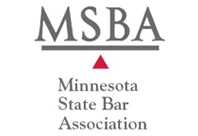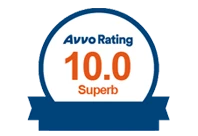
Bankruptcy rates are rising over the 65+ population. It’s common for seniors to find themselves in difficult financial situations as they age. But when debt becomes too much to handle, many seniors turn to bankruptcy to get relief.
If you’re considering filing for bankruptcy, speak to a debt relief attorney in Bloomington. They will explain the different types of bankruptcy available. They will also guide you on what to expect.
Why Seniors Are Filing For Bankruptcy
There are several reasons why seniors may find themselves in financial difficulty. It’s a matter of living on a fixed income. As the cost of living increases, seniors may find it challenging to make ends meet. Others may have unexpected medical expenses.
Others may have invested in a business venture that didn’t pan out. Whatever the reason, if you’re a senior citizen and you’re considering bankruptcy, you’re not alone.
Types of Bankruptcy Filing Available
There are two main types of bankruptcy available to individuals: Chapter 7 and Chapter 13. Which one you choose will depend on your particular financial situation.
Chapter 7 Bankruptcy
In what is known as liquidation bankruptcy, assets can be sold in order to repay creditors, but only if they are not exempt (protected) from creditors . The exemption laws in Minnesota are generous, and the majority of people who file Chapter 7 lose little or none of their property.
Chapter 13 Bankruptcy
Chapter 13 allows you to keep your property, even if it is not exempt from creditors. With the help of your attorney, you will file a debt consolidation and partial repayment plan with the court. The court will appoint a trustee to distribute the money to your creditors. This is “reorganization bankruptcy.”
Payments typically last 3 to 5 years. The amount of the payment in Chapter 13 is based on the amount that is affordable under your budget. There is no set percentage of debt that must be repaid. Many Chapter 13 Plans pay only a small percentage of the debt. However, the Chapter 13 case cannot result in less payment to creditors that a Chapter 7 liquidation case would have paid them. You are protected from your creditors while you make the payments. When the payments are completed, the debt is discharged (forgiven), just like Chapter 7.
Which Type of Bankruptcy Is Best for Seniors?
There is no one-size-fits-all answer to this question. The type of bankruptcy best for you will depend on your financial situation. If you have a lot of property that you want to keep, Chapter 13 may be the better option.
But if you don’t have much property or cannot make payments on a repayment plan, Chapter 7 may be the better choice. You should speak with an experienced bankruptcy attorney to determine which type of bankruptcy is right for you.
What Happens if You File Bankruptcy as a Senior Citizen?
If you’re a senior citizen considering bankruptcy, it’s essential to understand the possible consequences. Filing for bankruptcy can have a significant impact on your credit score. If you have poor credit, you may see your credit score go up quickly. If you have good credit, it may bring your credit score down. Bankruptcy can stay on your credit report for up to 10 years. However, there are steps that you can take to achieve a good credit score within about a year after bankruptcy.
Another possible consequence of filing for bankruptcy is the loss of your property. In a Chapter 7 bankruptcy, the Bankruptcy Court can liquidate assets if they are not exempt (protected) from creditors. The majority of people are able to exempt and keep all or most of what they own in a Chapter 7 case. However, if you own enough property, it is possible that you could lose something. In a Chapter 13 case, the Bankruptcy Court does not take property from you, but you are required to make a monthly payment to the Court to pay at least a fraction of the debt.
Before you decide to file for bankruptcy, it’s essential to weigh the pros and cons carefully. Many people who file for bankruptcy have nothing to lose but their debts. However, you must understand the pros and cons of bankruptcy for your situation to decide what is best for you.
Debt Relief Options For Seniors Other Than Bankruptcy
If you’re a senior citizen considering bankruptcy, a few debt relief options are available. There are many government assistance programs available to seniors. These programs can help with everything from food and housing expenses to medical bills.
Administration On Aging
If you’re a senior citizen struggling with debt, the Administration on Aging can help. The Administration on Aging is a government agency that provides information and resources for seniors. They can help you find government assistance programs, reverse mortgages, and debt consolidation options. To learn more, contact your local Area Agency on Aging.
Area Agencies On Aging
The Area Agencies on Aging (AAA) is a network of over 600 public and nonprofit organizations that provide services to seniors. AAA offices are located in every state, District of Columbia, and Puerto Rico. To find the AAA office nearest you, visit the Administration for Community Living website.
Reverse Mortgages
A reverse mortgage is a type of debt management loan available to seniors who own their home outright or have a significant amount of equity in their home. You can borrow against your home equity with a reverse mortgage to get cash. The money you receive can be used for anything you want – from paying off debts to covering medical expenses.
To be eligible for a reverse mortgage, you must also be 62 years old and meet the criteria mentioned. You must also live in your home as your primary residence. And unlike a traditional mortgage, you don’t have to make any payments on a reverse mortgage until you sell your home or die.
If you’re considering a reverse mortgage, make sure to do your research. Several different types of reverse mortgages are available, and not all are right for everyone. Be sure to speak with an experienced financial advisor to determine if a reverse mortgage is right for you.
Debt Consolidation
Another option for seniors struggling with debt is debt consolidation. Debt consolidation can help you get out of debt faster and save money on interest. With debt consolidation, you take out a new loan to repay your debts. This can be a good option if you struggle to make multiple monthly payments.
To be eligible for debt consolidation, you must have a good credit score. You’ll also need to prove that you can repay the loan.
If you’re considering debt consolidation, compare offers from multiple lenders. And be sure to read the fine print carefully. Some debt consolidation loans come with high fees and strict repayment terms.
Credit Counseling
If you’re struggling to pay your bills, credit counseling can help. Credit counselors provide free or low-cost services to help consumers manage their finances. They can help you to start a budget, work with your creditors, and set you on a path to get out of debt.
Contact the National Foundation for Credit Counseling to find a reputable credit counseling agency near you.
Debt Settlement
Debt settlement is an option for people struggling to pay their debts. With debt settlement, you work with a company to negotiate settlements with your creditors. The debt management company then pays your creditors the agreed-upon amount, and you’re responsible for paying the company a fee, along with a monthly payment to be used to settle the debts as enough funds become available. Debt settlement can work for some people, but many people try debt settlement and eventually file bankruptcy anyway. Creditors may not be willing to wait for years to be paid. People frequently complain that the debt settlement companies continually ask for higher payments and the programs become unaffordable. Many times, people are sued by the creditors and their wages are garnished before they can settle all the debts. Also, it’s essential to beware of scams. Some companies charge high fees and don’t deliver on their promises. And settling your debts will harm your credit score.
If you’re considering debt settlement, make sure to do your research. And be sure to speak with an experienced financial advisor before making any decisions.
Steps You Can Take to Avoid Bankruptcy
You can do a few things to help you avoid bankruptcy if you’re considering filing. Some of these actions are as follows.
Budgeting
One of the best ways to get out of debt is to create a budget and stick to it. A budget will help you track your expenses and ensure you’re not spending more than you can afford. It can also help you identify areas where you can cut back on spending.
If you’re unsure how to create a budget, many online resources are available. The National Foundation for Counseling offers a free online course, Financial Basics: Creating a Spending Plan. This course will teach you how to create a budget that works for you.
Financial Literacy
Another critical step in getting out of debt is becoming financially literate. Financial literacy is understanding financial concepts and making sound financial decisions.
There are several ways you can improve your financial literacy. The most important thing is learning about personal finance to make better financial decisions. You can take an individual finance class, read books or articles about personal finance, or even talk to a financial advisor.
Give Up Your Credit Cards
If you’re struggling with debt, one of the best things you can do is give up your credit cards. Credit cards can be a helpful tool, but they can also be a significant source of debt. If you cannot control your spending, it’s best to get rid of your credit cards.
If you decide to give up your credit cards, cut them up or cancel them so you’re not tempted to use them again. You should also consider closing any unused accounts to help improve your credit score.
Call a Bloomington Bankruptcy Attorney
Before you decide on filing for bankruptcy, it’s essential to explore all of your options. There are many government assistance programs and other debt-relief options available to seniors. You should speak with a financial advisor or an experienced bankruptcy attorney to determine which choice is right for you.
Get a free case evaluation with us. We will determine whether filing for bankruptcy is the best option for you.








